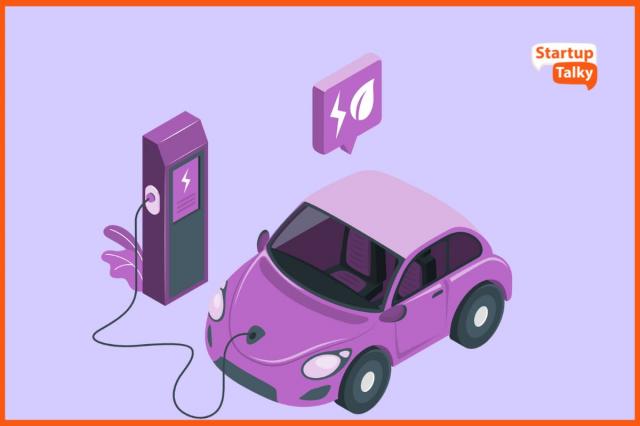Automobile manufacturers have been stepping up their technological game to become industry leaders in Electric vehicles ever since the notion was first presented globally. As a result of Tesla's success, worldwide corporations are racing to be the first to cash in on this industry's promising future. The electric vehicle market is very competitive in India as well. India revealed its lofty goal of decarbonization for 2030 at COP26. In addition to joining the worldwide EV30@30 campaign, this means cutting energy sector carbon emissions in half and increasing renewable energy generation capacity to 500 gigawatts by 2030. India plans to do this by tripling its present renewable capacity and setting a specific target of having 30 percent of new car sales be electric vehicles (EVs) by 2030 through its EV30@30 program.
At least in the realm of passenger cars, that is an enormous undertaking. With 49,800 EVs sold out of 3.8 million passenger vehicles in 2022, electric cars made up just 1.3% of all vehicle sales. With both established and up-and-coming firms investigating various avenues for research and development and commercial manufacturing of automobiles and auto parts, the automotive industry and related sectors are optimistic about the future of electric vehicles.
According to media projections, the electric vehicle industry in India might reach $7.09 billion by 2025, up from $2 billion in 2023. Sales of electric vehicles in the United States are expected to reach 10 million units per year by 2030.
Chinese Carmaker Entering the Indian Market
Developments in the International Market
Indian Government Going Vocal for Local
Chinese Carmaker Entering the Indian Market
Sanjay Gopalakrishnan, BYD's senior vice president of electric passenger vehicle business, told a prominent media house that the company's goal in India is to maintain its dominance in the electric vehicle (EV) sector priced over Rs 30 lakh. "We have multiple SUVs globally, but we thought that Seal is the right product for the Indian market," Gopalakrishnan explained when asked why the company would introduce a sedan in a nation where SUVs are in high demand. The world over, people are raving about it. It goes up against Tesla's Model 3. Customers in India are familiar with the Model 3, so we figured they would be interested in trying out a Model 3 rival that showcases our technology and performance.
Across the country, BYD now operates 24 dealerships. Gopalakrishnan reiterated the company's goal of penetrating 90% of the market for electric vehicles.
The Chinese electric vehicle maker had planned to build an electric vehicle (EV) assembly plant in Hyderabad in conjunction with Megha Engineering and Infrastructures Ltd (MEIL) last year, but the Indian government turned down their $1 billion investment offer.
Developments in the International Market
Companies in the international EV industry are releasing a plethora of new, feature-packed models that are characterized by cutting-edge technology. As the formal premiere of its highly anticipated electric car, the SU7, approaches on March 28, the famed Chinese smartphone giant Xiaomi is preparing for a momentous occasion. The company's strong statements regarding the car's availability right after launch indicate a major shift towards the electric vehicle (EV) industry.
In 2018, Volvo began investing in small firms with the hope of developing technology that may be utilized in its vehicles. Some of these companies have developed software that can reduce the time it takes to charge batteries by 15-30% (from 10-80%), as stated in the report. The algorithmic charging process is managed by the UK-based startup Breathe Battery Technologies. In contrast to conventional electric vehicles, which use a phased charging program with predetermined limitations to save their batteries, Breathe's technology allows for real-time dynamic regulation of energy flow.
Even though the US federal government would not subsidize the purchase of a 2024 Kia EV9—an electric three-row SUV—Kia itself will. All EV9 purchases made by April 30 will receive a $5,000 cash discount from the manufacturer. This means that customers may obtain a base Light trim for as low as $51,395 or a top-tier GT-Line for as low as $70,395 (with a destination cost of $1,495).
Indian Government Going Vocal for Local
During the early stages, the Central Government is considering granting companies like Tesla a decrease in import charges on fully constructed units to boost domestic manufacturing. And because the government plans to set up a regulatory framework for high-tech car makers, local sourcing will be a need. The initiative aims to reduce the import duty on environmentally friendly vehicles. If Indian carmakers agree to start manufacturing their vehicles in India and sourcing their components locally, the duty could be reduced significantly, possibly from 100% to as low as 15-30%.
Furthermore, these businesses will be asked by the government to guarantee that they will create a supplier ecosystem, with a primary goal of obtaining 20% of the components from local sources in the first two years. It is anticipated that this percentage will rise to 40% by the end of the fourth year of the agreement.

